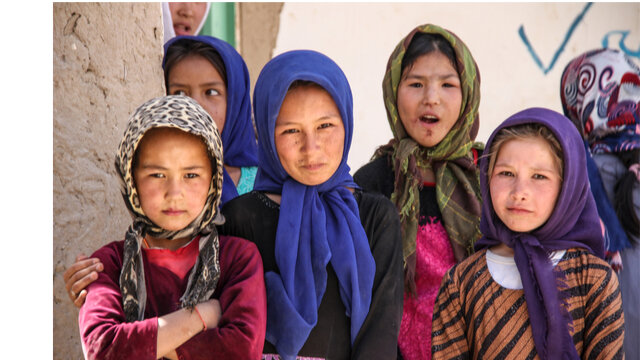What Muslim Scholars Owe Afghanistan
Used with permission from the author

By Mehlaqa Samdani
At their first press conference, the Taliban promised to uphold the rights and freedoms of women, the media, and civil society in Afghanistan within the framework of the Shariah. This left many wondering how the Taliban would choose to implement the Shariah this time around, given their brutal and regressive interpretation of the 1990’s?
At a time when the Taliban are desperately seeking international recognition and legitimacy, there is an opportunity for Muslim religious scholars and institutions to provide a theological framework that would push the Taliban to expand the rights of women and religious minorities.
While it is still early days, the Taliban seem intent to portray a softer image. They allowed some female presenters to get back on air and invited women to join their government. Two weeks ago, as they took over Kabul, a Taliban delegation attended a Muharram majlis, a Shiite commemoration of the martyrdom of Imam Hussain. It is believed they did so to appease Iran, which cultivated close ties with the Taliban over the past several years and is poised to support the new regime through trade and investment. Given the Taliban’s ideological revulsion to Shiites, this gesture indicates their willingness to sacrifice theological beliefs to advance strategic interests.
However, there is only so much theological latitude they can display without risking pushback from their most hardline followers. It is important therefore for influential Muslim religious scholars to provide theological pressure, and in certain cases, theological cover that would allow the Taliban to make concessions on the rights of women and religious minorities.
The Taliban profess to follow the Deobandi version of Islam, which began as a revivalist movement in the Indian sub-continent as a response to British colonialism in the 19th century. Founders of the Deobandi school believed Muslims could only regain their identity, strength, and stature by returning to a strict and austere interpretation of Islam. The original Islamic seminary, Dar-ul-Uloom Deoband, was established in Deoband, India, in 1866—since then, thousands of Deobandi madrassas have emerged across the world with perhaps the highest concentration in South Asia.
It was during the Soviet invasion of Afghanistan that Deobandi madrassas were set up along the Pakistan-Afghanistan border, with coordination and funding provided by Pakistan’s ISI, the CIA, and Saudi petrodollars. Students were churned out by the thousands to wage jihad against the ‘godless Soviets’. These later became the Taliban.
In the post 9/11 context, many religious organizations in the Muslim world have sought to counter the theological arguments put forth by militant organizations to justify their actions. In 2008, the Dar-ul-Uloom Deoband issued a fatwa against terrorism at a conference attended by 10,000 senior clerics. The organizers also called on clerics across South Asia to endorse their fatwa as a way to influence the Pakistani and Afghan Taliban.
In addition, leading Muslim scholars from across the theological spectrum have come together to develop norms and consensus around issues such as sectarianism, Amman Message, 2005; the rights of religious minorities in Muslim-majority countries, Marrakesh Declaration, 2016; and to denounce extremism and promote religious diversity and pluralism, Charter of Makkah, 2019.
It is now critically important that the Organization for Islamic Cooperation (OIC) convene an emergency session with the participation of religious scholars from across the Muslim world—they should call on the Taliban to protect the rights of women, and govern in the spirit of the Amman Message, the Marrakesh Declaration, and the Charter of Makkah. The initial OIC statement issued after the fall of Kabul is encouraging:
“There is an urgent need to contain the fall out of ongoing political instability to preempt chaos and violence and restore the rule of law, democratic institutions, and constitutional protections to uphold fundamental freedoms and human rights in all circumstances, which is also in accordance with egalitarian Islamic values and universal human rights standards”
Now that they are in a position to govern and in need of international support, the Taliban are more likely to be receptive to mainstream conceptions of human rights as practiced in many Muslim-majority countries. While these are not perfect by any standard, this would certainly be a step forward.
Pan-Islamic organizations and Muslim religious institutions must step up to prevent the Taliban from engaging in the excesses they perpetrated last time they were in power. They owe the people of Afghanistan nothing less.

